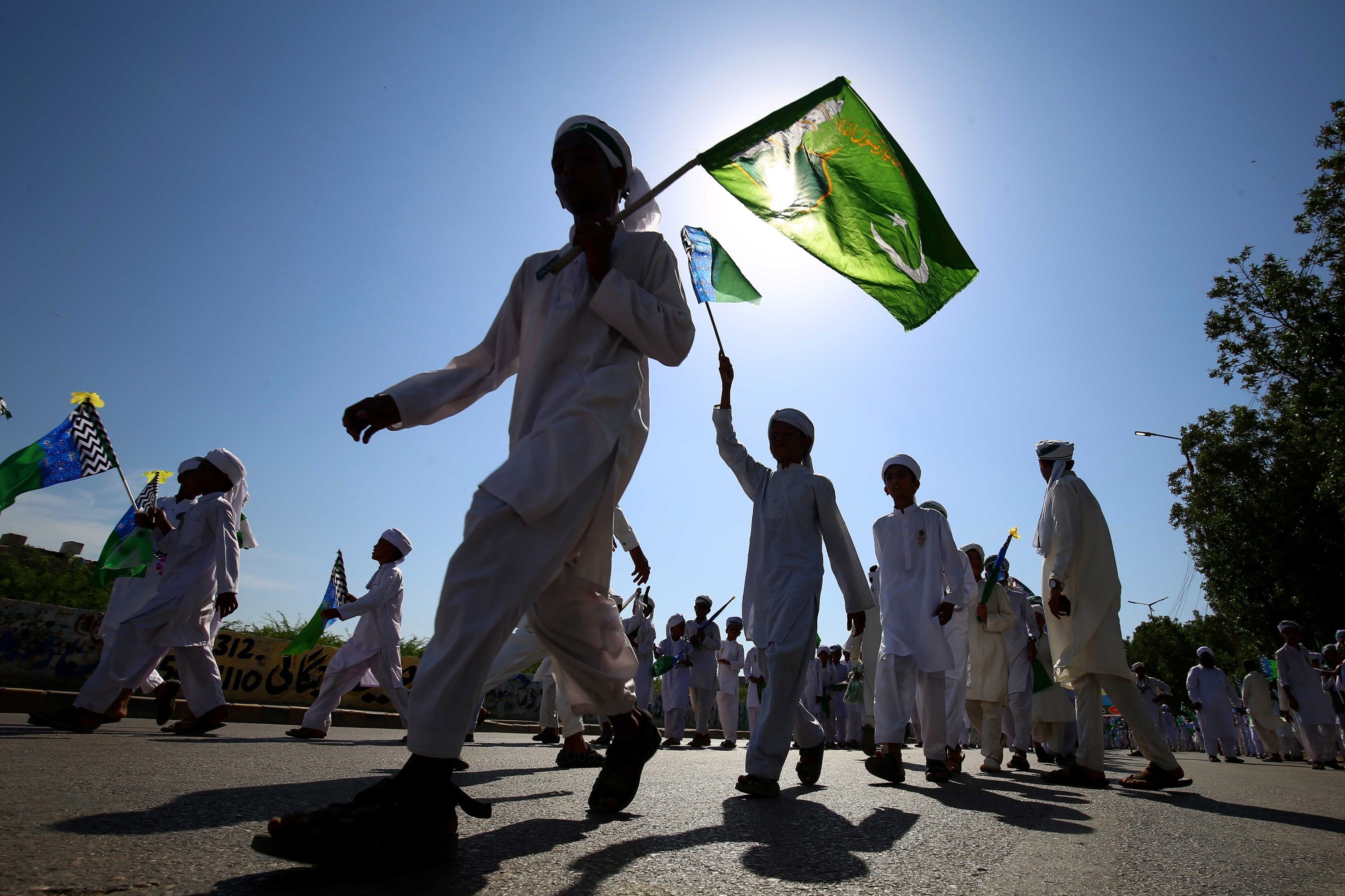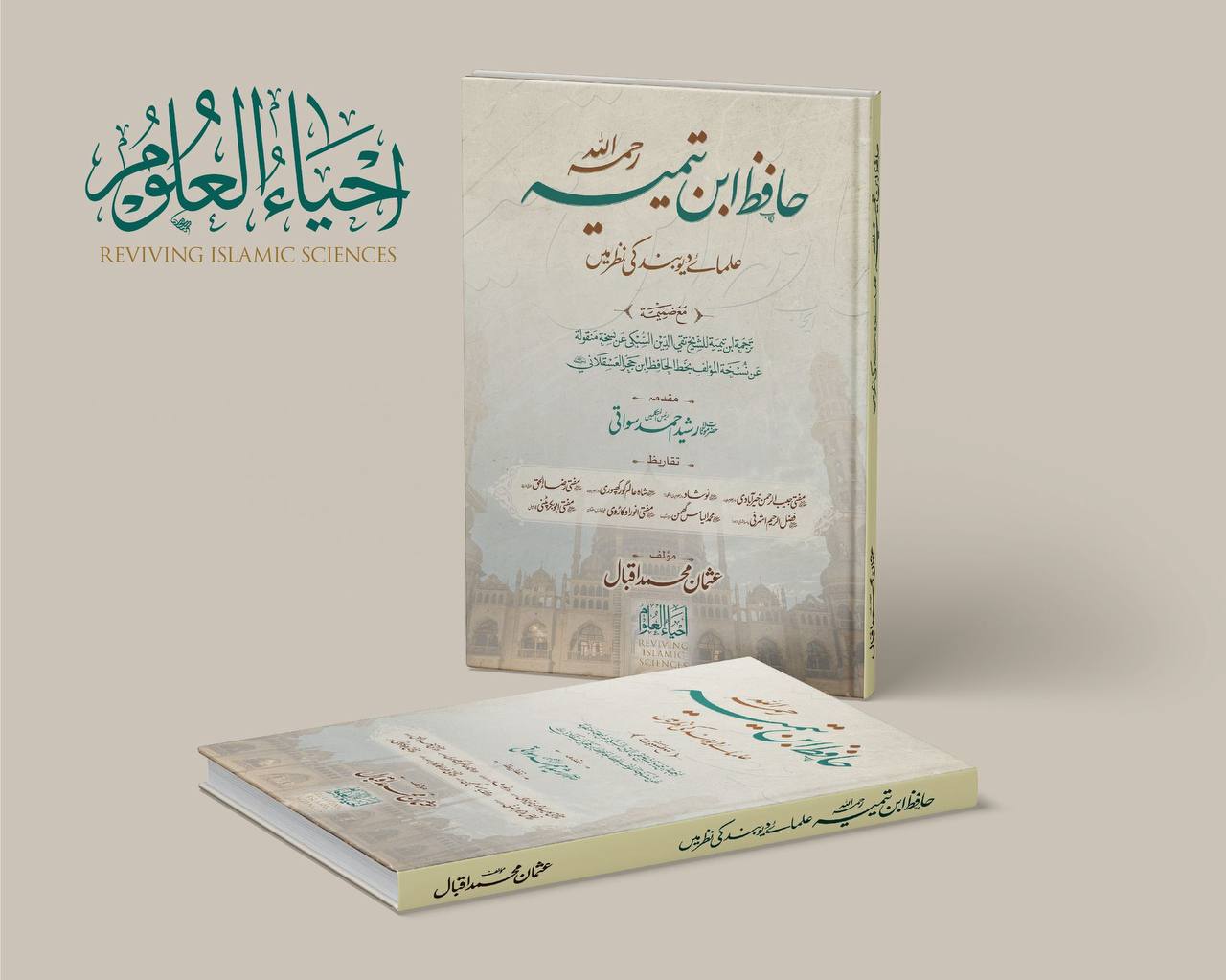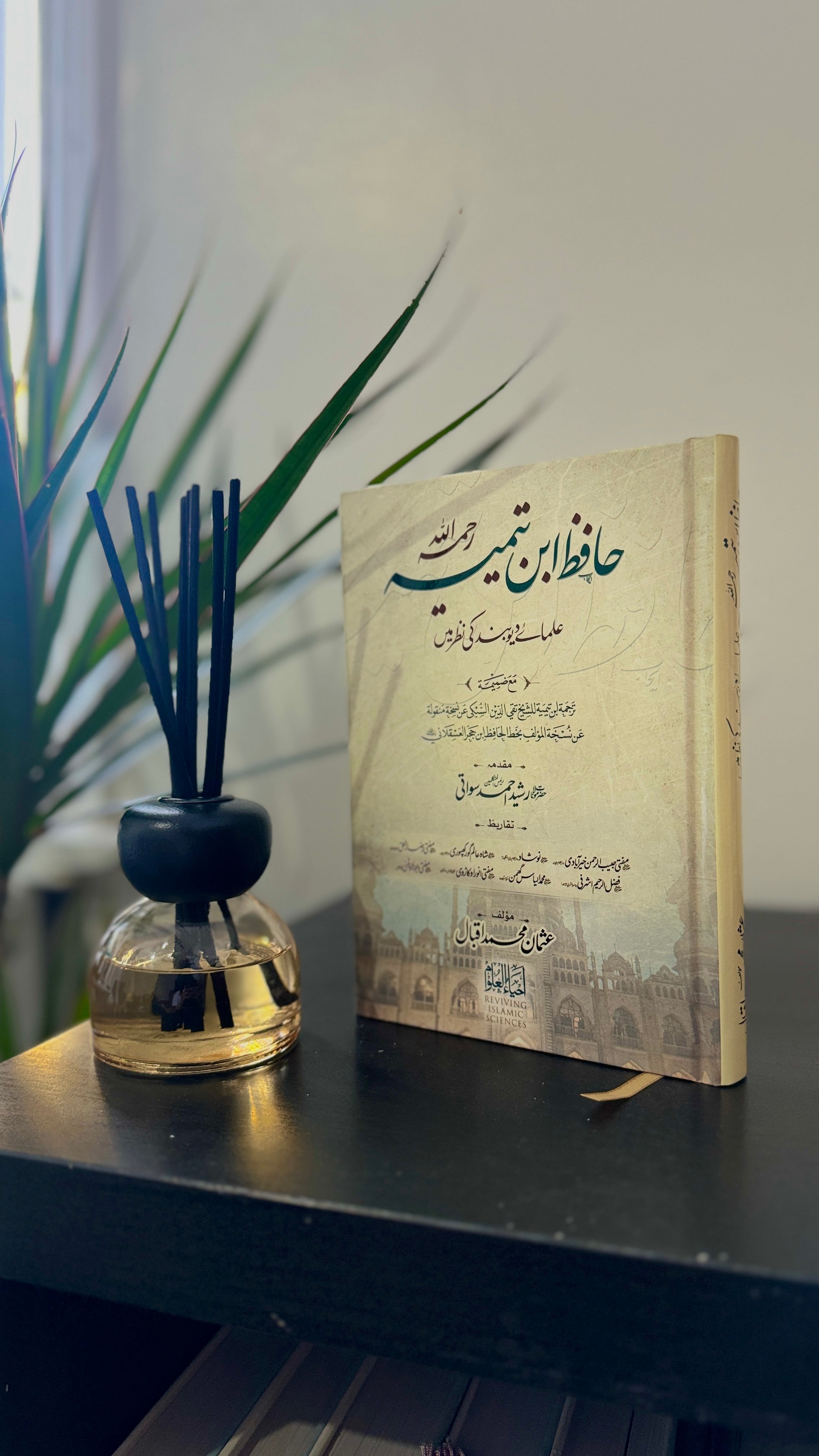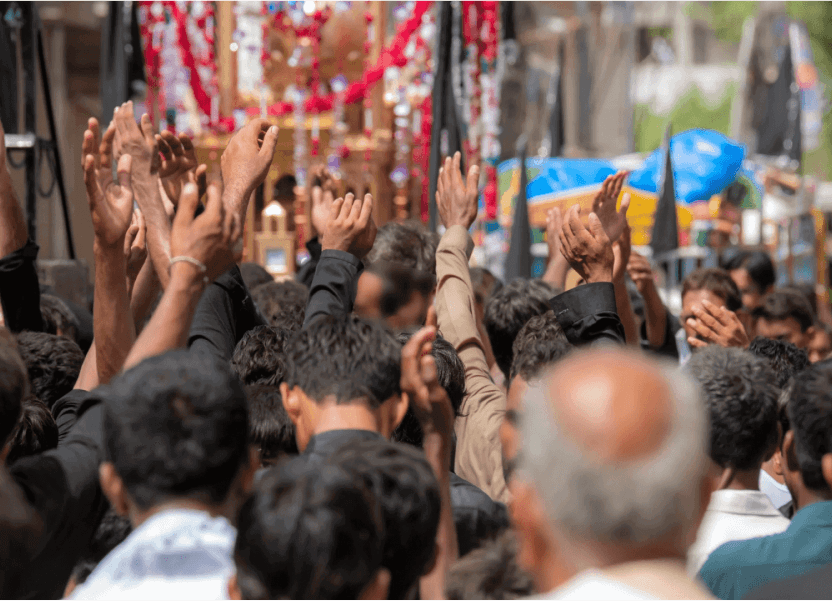Disclaimer
Introduction
In recent times, a growing number of emerging voices in the ‘scholarly’ sphere have begun to deviate from the path laid down by our pious predecessors. In their pursuit of novelty, they have often fallen into profound misunderstandings of dīn, leading not only themselves but also others astray. This phenomenon is neither unprecedented nor unforeseen; rather, it was explicitly foretold by the Prophet ﷺ in a well-known hadīth:
إنَّ اللهَ لا يقبضُ العلمَ انتزاعًا ينتزعُهُ منَ النَّاسِ ، ولَكن يقبضُ العلمَ بقبضِ العُلماءِ ، حتَّى إذا لم يترُك عالمًا اتَّخذَ النَّاسُ رؤوسًا جُهَّالًا ، فسُئلوا فأفتوا بغيرِ عِلمٍ فضلُّوا وأضلُّوا
(Allah does not take away knowledge by snatching it away from the people, but He takes away knowledge by taking away the scholars, until when no scholar remains, people will take ignorant ones as leaders; they will be asked, and they will issue fatwas without knowledge, thereby going astray and leading others astray).
— Narrated by al-Tirmidhī (2652,), al-Bukhārī (100), and Muslim (2673).
This prophetic warning resonates with our current reality. As true scholarship diminishes with the passing of the rightly guided scholars, self-appointed authorities rise to prominence, issuing opinions detached from the methodology and balance of the akābir. The result is precisely what the Prophet ﷺ described: faḍallū wa-aḍallū—they go astray and lead others astray.
It is within this context that the following discussion seeks to highlight the importance of adhering to the guidance of the akābir and to critically examine contemporary distortions that attempt to legitimize innovations and reframe foundational concepts of the faith.
Tarahhum on the Takfiri Ahmed Ridha Khan Al-Barelwi
A sincere reminder to those who use Hazrat Thanwi’s (رحمه الله) humility—such as when he once reprimanded his own murīd for not addressing Ahmed Ridha Khan with “Mawlana”—to push the notion of unity and adab: it is necessary to view this in light of Hazrat Thanwi’s other, far more decisive statements.
For instance, when Hazrat Thanwi was presented with a couplet from Ahmed Ridha Khan’s Hadaiq-e-Bakhshish—where he exaggerated the praise of Shaykh Abdul Qadir Jilani (رحمه الله) to the point of calling him “Mālik” in the sense reserved only for Allah—Hazrat Thanwi issued a fatwa in Imdad al-Fatawa declaring this shirk, and judged Ahmed Ridha Khan to be outside the fold of Islam.
This demonstrates that Hazrat Thanwi’s initial statement arose purely from humility, especially since he himself was often the target of Ahmed Ridha’s vitriol. Such restraint has always been the way of our elders. Therefore, fairness demands that one must consider both fatwas of Hazrat Thanwi, not selectively quote from one while ignoring the other.
Hazrat Thanwi’s khalifah, Mawlana Murtada Hasan Chandpuri (رحمه الله), was deeply involved in the field of polemics. It is well known that he explicitly made takfir of Ahmed Ridha. Should we assume that Mawlana, a close khalifah, did not understand Hazrat Thanwi’s temperament (mizāj)—but the ‘Scholars of 2025 with foresight’ somehow do?
Similarly, Hazrat Khalil Ahmad Saharanpuri (رحمه الله), in Al-Muhannad, referred to Ahmed Ridha as a “dajjal” and equated him with Mirza Ghulam Qadiani. Hazrat Hussain Ahmad Madani (رحمه الله), in al-Shihab al-Thaqib, described him as “Mujaddid al-Dajjalīn, Mujaddid al-Dhāllīn, and the Dajjal of the era.”
These were our Akabir. Did they lack adab? Did they lack foresight? Or is it that they saw with clarity the treachery and corrupt beliefs of Ahmed Ridha Khan, and spoke the truth without compromise?
In contemporary times, particularly among certain younger circles, there has emerged a tendency to reframe the concept of mawlid through individual reinterpretations and to normalize practices that have historically been identified as bidʿah within the Sunni scholarly tradition. In response to these developments, Shaykh Abū Ayyūb Qādrī has authored the following risālah, offering a systematic critique of such reinterpretations and situating them within the broader discourse of Islamic orthodoxy and innovation.
تذكير العباد في مسئلۃ الميلاد
A reminder to the believers regarding the issue of Mawlid
-By Shaykh Abu Ayub Qadri, student of Mufti Zarwali Khan Rahimahullāh and many other erudite scholars
Respected brothers of Ahl al-Sunnah wal-Jama'ah, the excellence and devotion of our predecessors was truly remarkable. Their state was such that every moment of their lives was filled with the remembrance and praise of our beloved Prophet Muhammad ﷺ. They embodied his noble character in every aspect of their lives, be it in their speech, appearance, or actions. Their entire existence was like a beautiful bouquet, blooming with memories of the Prophet ﷺ, perfumed by the mentions of his blessed life. From his birth to his passing, the fragrance of his life spread like the sweet scent of a rose.
Unfortunately, in the times we live in, many have confined the remembrance of the Prophet ﷺ to a single period in the year, or worse, just a few days. They celebrate with pride, believing they are the true lovers of the Prophet ﷺ, thinking that the lesson of love for him can only be learned from them. But the mindset of the early generations was different. They did not believe that love for the Prophet ﷺ meant remembering him only once a year. No, my friends, the true essence of love for the Prophet ﷺ is to remember him at all times. As the scholars have said, the remembrance of Allah (dhikr) is not just about repeating praises and glorifications, but about keeping Allah in mind at every moment and following His commands in every action.
Similarly, the remembrance of the Prophet ﷺ should not be limited to annual gatherings of Milad. Instead, his noble character and Sunnah should be present in every action, throughout the year. This is the true understanding of love for the Prophet ﷺ. May Allah grant us the ability to make our lives a complete reflection of the remembrance of the Prophet ﷺ. Ameen.
An Impartial View of the Current Situation
Let us now take an unbiased look at the current practice of celebrating Milad, so that no one feels driven by stubbornness or prejudice.
We begin with the words of Ahmed Raza Khan Barelvi.
In his Fatawa Rizwiyya, volumes 23 and 24, Ahmed Raza Khan discusses in detail the practice of constructing models of tombs (ta'ziyah). He explains that, in its original form, the ta'ziyah was permissible because it represented the blessed tomb of Sayyiduna Hussain (may Allah be pleased with him), and keeping it as a source of blessing was acceptable. However, over time, ignorant people introduced various innovations and corrupt practices, which corrupted the original intent and rendered the practice impermissible
(Fatawa Rizwiyya, volumes 23 and 24).
Understanding Through Islamic Principles
Another important principle is mentioned in Fatawa Rizwiyya several times: supererogatory prayers (nawafil) performed with public invitation (tada'i) become disliked (makruh). When people are called to gather for nawafil, or if four or more people join in addition to the imam, the prayer becomes makruh because it creates a sense of obligation where none exists.
We must understand that, based on the writings of Imam Ahmed Raza Khan himself, any recommended or preferred action can become disliked when mixed with corrupt practices. If a permissible act is elevated to the status of an obligation or a Sunnah, it becomes disliked. This principle is consistently mentioned by Hanafi jurists, including Allama Shami and Allama Ibn Nujaym in Nahr al-Fa'iq, as well as in Fatawa Alamgiri, a compilation by over 500 senior scholars. They explain that, for example, the prostration of gratitude is recommended, but performing it after obligatory prayers is disliked because people might start believing it to be a required act. Any permissible act that is perceived as obligatory becomes disliked.
Our Barelvi brothers initially began celebrating Milad as a permissible act, but over time, they elevated it to the level of a recommended, then obligatory, and finally, an essential religious act. They even went so far as to issue fatwas of disbelief against those who disagreed. We have discussed this issue in detail in other writings.
Applying these principles to the issue of Milad makes the matter easier to understand.
The Current Practice of Milad
The remembrance of the Prophet’s birth is undoubtedly one of the most commendable and desirable acts. However, our Barelvi brothers have introduced numerous corrupt practices into the celebration, such as the mixing of men and women in gatherings, equating the Milad with obligatory religious duties, labeling those who disagree as disbelievers or enemies of the Prophet , engaging in frivolous activities like dancing and loud music, neglecting obligatory prayers, blocking roads, and much more. There are countless such corruptions.
To simplify, Allama Ibn Hajar Makki writes in Al-Fatawa Al-Hadithiyya that while a proper and sincere Milad celebration is rare, most gatherings are filled with corrupt practices. Even if we focus on just one issue, like the mixing of men and women, it is sufficient to invalidate the benefits of the gathering.
The Perspective of the Deobandi Elders
Our elders in Deoband were also strict followers of the Hanafi school. In fact, Mawlana Muhammad Zakir (may Allah have mercy on him) of Muhammadi Sharif quoted Khwaja Khwajagan Mawlana Ziauddin Sialvi (may Allah have mercy on him) as saying, after visiting Darul Uloom Deoband, that he witnessed true adherence to Hanafi principles there. This statement has been published in various booklets, which we have in our possession.
In summary, our elders have consistently affirmed that remembering and honoring the Prophet ﷺ—particularly his blessed birth—is among the most commendable and desirable acts of devotion. However, the contemporary forms of Mawlid celebration bear little resemblance to the simplicity and sincerity that characterized earlier generations. What was once an expression of love for the Prophet ﷺ has, in many present contexts, become entangled with practices, excesses, and innovations that stand in contradiction to the principles of Sharīʿah. Thus, while the remembrance itself remains praiseworthy, the way it is observed today represents a very different context from that of the past, rendering such celebrations impermissible in their current form.
Explore Our Recent Insights
Dive deeper into Islamic knowledge and teachings.









